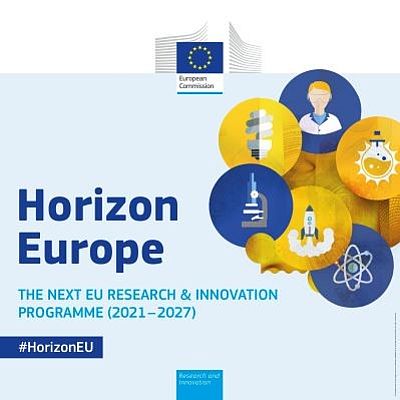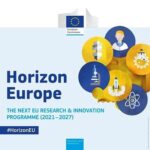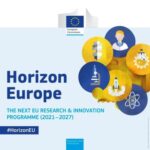Eight tips for consortium-building in Horizon Europe
Building a competitive and relevant consortium is crucial to funding success in Horizon Europe. Here, Kay Duggan-Walls, the HRB’s National Contact Point (NCP) for Horizon Europe, Cluster 1: Health, gives her expert advice on how to achieve this.
7 min read - 16 Feb 2022

A starting note: If you don’t have experience of working in a consortium or leading a proposal, a good way to start can be to join first as a project partner. Once you have gained some experience, you can consider taking the role of work package leader in later proposals and working your way up to coordinator.
But if you are ready to start building a consortium, here is your roadmap for success:
1. Understand the ideal
Before you begin building a consortium, you need to know what an ideal one should look like:
- The ideal consortium will be balanced and credible, with complementary skills and an appropriate size for the project. It needs to be perfectly tailored to execute the project and the partners must be up to the job, with relevant, recent publications and expertise. The goal is to have a manageable project structure, with a reasonable administrative burden. It’s also important to identify gaps in the expertise of the consortium and bring in the expertise and/or technology that is missing
- Each partner should have a unique role. So, make sure you have a clear idea of what kind of roles and expertise you need to deliver the work and avoid redundancy and unnecessary partners who may become a burden during the role out of the project as they may not really be needed
- Think about diversity, like geographical spread of the partners and gender balance. Avoid unbalancing the consortium to just a few countries. Also think about the balance of academic and non-academic partners, including patient organisations, civic society and industry partners. Horizon Europe Health calls are collaborative and multidisciplinary, and project partners from different countries and disciplines are required
- Think about who you can work effectively with. Involve people you are happy to work with for an extended period, as Horizon Europe projects can be up to five years duration.
2. Read the small print
To be eligible for funding, your consortium must be made up of at least one partner from an EU member state and at least two additional partners from two other countries (from either EU member states or associated countries). A consortium of more than three partners is usually required, and it’s important to remember that the size of your consortium depends on:
- The nature of your proposal
- The size of budget indicated in the call
- The scope of the call described in the work programme.
As a rough guide, it’s recommended to have no more than 10 partners for a €3 million budget project. However, it all depends on the proposal and budget available.
Also, remember that one of the partners will need to be the coordinator who is responsible for developing and leading the consortium.
3. Choose collaborators wisely
The most common mistake people make is bringing on board their immediate “friends”, i.e., their close circle of professional peers or past or present collaborators before a thorough conceptualisation of the proposed project is made. This can be a mistake because these people may not be the most suitable for the project needs.
So, before you start contacting potential partners, think about what you want to achieve from the proposal. Ask yourself what expertise you require so there isn’t a discrepancy between the consortium partners and the project needs.
If you are the coordinator:
- Build an initial core consortium with partners that are already interlinked and relevant to your project
- Consider developing a consortium before the call text is published allowing you to bring together the best people before they are involved in other consortia
- Use your existing network. This is the best way to get core partners. These are people you already have direct or indirect connections with. For example, your collaborator’s contacts or people with whom you or other partners have already worked
- Think broadly about institutional links as well as personal ones. Potential partners could include colleagues from previous institutions where you have worked, visiting academics, policy/industry contacts, partners from previous grants, or colleagues you met at conferences or international networks
- When you have identified your core partners, provide them with a concept note outlining what your project is about and what their roles might be
- Include partners that are well known throughout Europe and from different backgrounds, and don’t hesitate to pick up the phone to contact experts you don’t know personally.
4. Stay focussed and take charge
Together with the core consortium, focus on developing the scientific ideas and drafting the scope and the main objectives, as well as a rough outline of the project. Remain focused on the scope of the call topic. It’s important to keep partners engaged at this stage.
If you are the coordinator, don’t be afraid to take charge and show leadership when decisions need to be made. You also need to ensure partners deliver on their tasks, as it’s a good indication of their commitment to the project in the long run.
5. Consolidate
Now your project idea and core team are prepared, start building the rest of the consortium, bringing in any required expertise which is missing. At this stage you can also bring in the next generation of early-stage researchers, which will give you a balance of experienced researchers and newcomers.
6. Use available resources
To find partners, it may be necessary to look outside the usual circle of contacts, or you may sometimes require a specific role that necessitates a partner search. The EU Funding and Tenders Portal offers a ‘partner search’ function where you can see what organisations are interested in each specific topic. It may be a little tedious, but searching the CORDIS database to see key players in the field can also yield good results. Here you can find researchers and organisations that have gained experience in this specific part of the programme and may be preparing new proposals. You can search by research area, call topic or key words to see a complete list of previous EU-funded research projects and their consortia as well as advisory group members who can also be potential partners.
7. Network
Another way to find partners is via information days and brokerage events, which are hosted regularly by the European Commission. These give you the opportunity to meet one-on-one with potential partners. Even if you can’t attend, the event websites will often publish lists of attendees/project presentations, which can also be valuable. If you need to find a company to partner with, the Enterprise Europe Network provides lists of technology and academic partners.
Participating as an evaluator or in working groups for the setting up of EU policy in your specific field is often described as an ‘invaluable’ way of networking. You’ll meet researchers from all over Europe within your area of expertise and strengthen and expand your network in a European context – and who knows, they may even become potential collaborators or partners in future applications.
8. Last, but not least, contact your NCP!
Please don’t forget to reach out to me. As National Contact Point (NCP) for Horizon Europe, Cluster 1: Health with the Health Research Board, I am here to help and guide you with all aspects of your application. You can email me on kdugganwalls@hrb.ie
This is the third in a three-part blog series on how to achieve success in your application for Horizon Europe funding by Kay Duggan-Walls. Read the first two on the links below:
1) Top tips for applying to Horizon Europe’s Cluster 1: Health
7 min read - 16 Feb 2022


